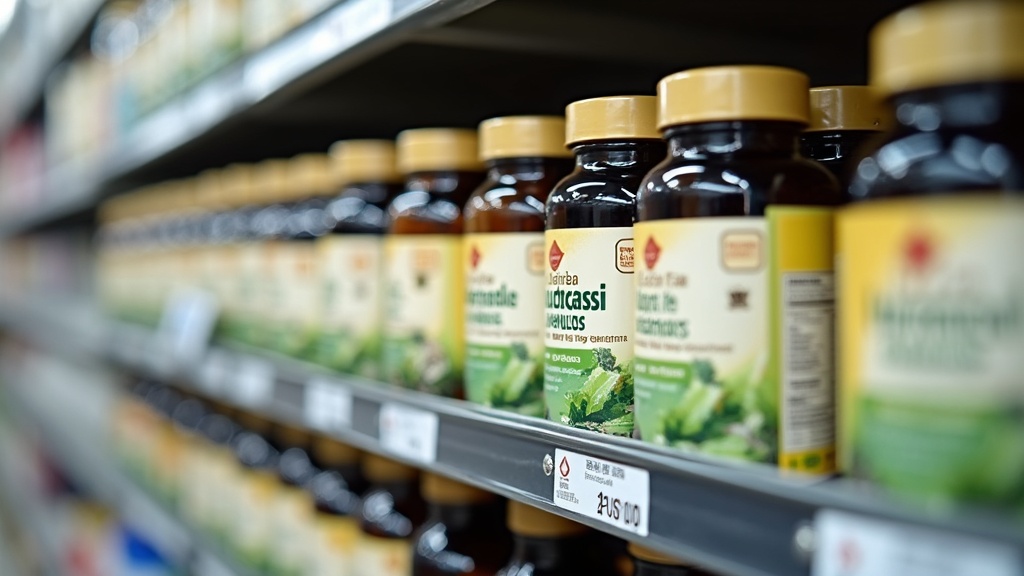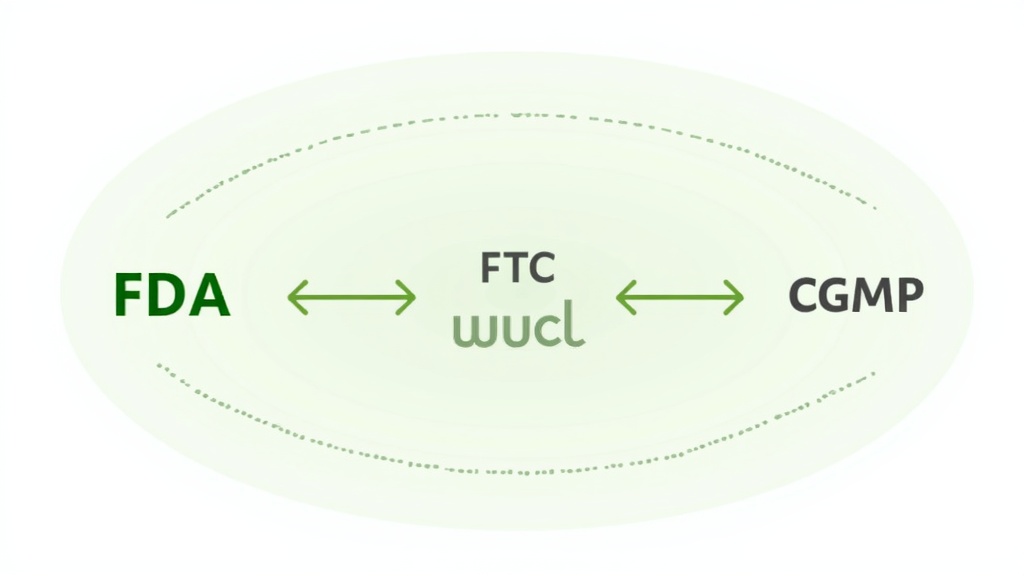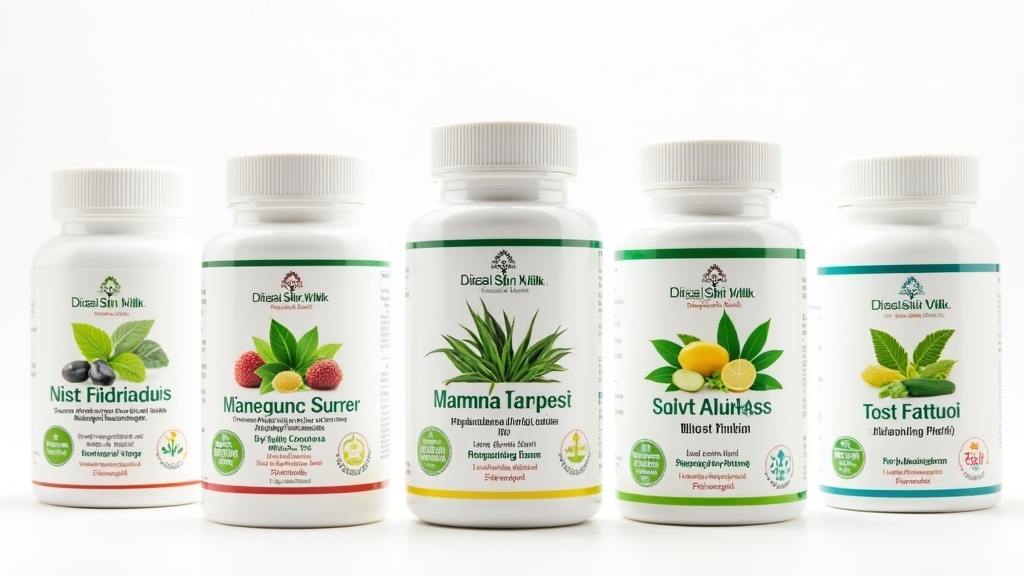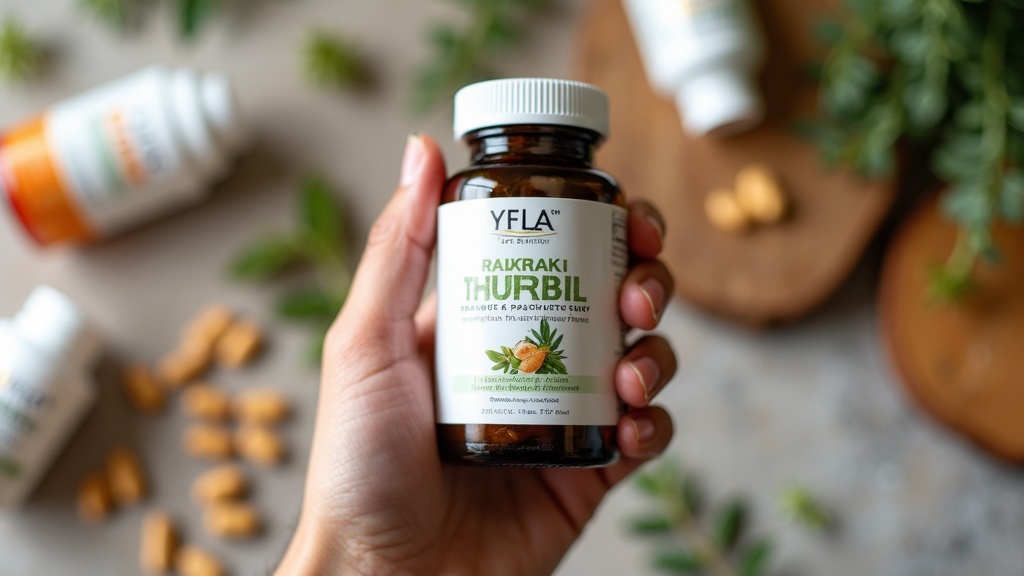If you’re browsing the shelves at your local pharmacy or scrolling through an online health store, you’ll probably notice a massive range of herbal supplements. These products pop up everywhere, from echinacea for colds to turmeric for joints. Despite their natural vibe, herbal supplements don’t get a free ride when it comes to regulation. There’s an entire web of rules, agencies, and industry standards shaping what you see on those bottles. Knowing how herbal supplements are regulated and who’s in charge can help you make smarter choices for your health and your wallet.
Here’s a closer look at what to know about the regulation of herbal supplements—including how they’re classified, the laws that apply, current safety systems, international differences, and what you can do as a consumer to ensure you get safe, legit products.
Herbal Supplements: How They’re Classified
In the United States, herbal supplements are usually grouped under the broader category of “dietary supplements.” They’re not considered prescription or over the counter medications, and that distinction makes a pretty big difference. The classification spells out which rules apply and what standards these products need to meet before they make it to store shelves.
Here’s what this means in practice:
- Herbal supplements are considered foods, not drugs. So, they follow the laws and oversight that apply to foods, at least for the most part.
- They’re covered under the Dietary Supplement Health and Education Act (DSHEA) of 1994. This federal law shaped how supplements are handled compared to drugs.
The DSHEA set up a whole new framework. Since then, the U.S. Food and Drug Administration (FDA) has regulated dietary supplements as a special food category, meaning manufacturers don’t have to prove their products are safe or effective before selling them under most circumstances.
This might sound strange if you’re used to thinking of “medicine” and “supplements” as kind of similar, but it’s a key piece of why herbal supplement regulation works differently from prescription drugs.
For more details, you can check out the full text of DSHEA from the National Institutes of Health.
The FDA’s Role: What the Agency Does (and Doesn’t Do)
The FDA plays a significant part in the oversight of herbal supplements. However, it does so in a way that surprises many people. Here’s what actually happens:
- No premarket approval: Companies don’t need permission from the FDA before selling most herbal supplements.
- Responsibility lies with the manufacturer: It’s up to supplement makers to make sure their products are safe, accurately labeled, and free from dangerous substances. The FDA doesn’t “sign off” before a product hits the shelves.
- Postmarket enforcement: The FDA steps in after supplements are on the market if there are complaints, reports of harm, product recalls, tainted batches, or obvious evidence of unsafe claims.
This reactive approach stands in contrast to prescription drugs, where the whole approval process must be completed before anyone can sell or advertise the medicine. With herbal supplements, the FDA acts after the fact. Still, the FDA can issue warnings, seize products, or require recalls when it finds safety issues or misleading advertising.
Some herbal ingredients, including new dietary ingredients (NDIs) that haven’t been sold in the U.S. before 1994, do require manufacturers to notify the FDA before marketing. However, that covers just a small fraction of the market.
Pre-Market Testing: What’s Required Before Supplements Hit the Market?
One of the biggest differences between herbal supplements and regular pharmaceuticals is the testing process before a product is released to the public.
- No clinical trials required: Manufacturers don’t have to run studies showing their product works or is safe before launch.
- Proof of benefits isn’t compulsory: Companies can sell supplements without proving the claims they make, unless those claims cross into the “drug” category or are blatantly false.
- Only certain new ingredients need FDA notification: Even then, the notification doesn’t mean formal FDA approval.
This setup comes with both pros and cons. Herbal supplement companies can put out new products quickly, giving you faster access to trending ingredients. On the downside, what’s on the shelves might not actually live up to health promises. All the buzz around certain herbs isn’t double-checked for truthfulness in the same way as medical ads.
For anyone interested in supplement research online, checking out independent studies and reviews (such as those on ConsumerLab or USP) can be really helpful.
Labeling Rules: What Information Must Be on Herbal Supplements
Herbal supplements don’t require premarket approval, but the FDA does enforce strict labeling requirements. This helps consumers make informed decisions.
- Supplement Facts panel: Every package must show the active ingredients, serving size, and how much of each herb or compound is included.
- Full ingredient list: All ingredients, including non-active fillers or preservatives, must be listed.
- Manufacturer or distributor contact info: Shoppers should be able to reach out if they need to.
When it comes to health claims, labeling is even more specific:
- No “disease” claims: Brands cannot say their product “treats,” “prevents,” “cures,” or “diagnoses” conditions like diabetes, cancer, anxiety, or arthritis. If you see a supplement making those types of promises, beware.
- Structure/function claims are permitted: You’ll see phrases like “supports digestive health” or “may promote relaxation.” These are less direct and don’t say the supplement treats a specific medical condition.
- Mandatory FDA disclaimer: When a company makes a structure/function claim, they have to add: “This statement has not been evaluated by the Food and Drug Administration. This product is not intended to diagnose, treat, cure, or prevent any disease.”
This is where reading carefully really matters. Trustworthy herbal supplement brands usually play it safe. If something sounds over the top, it probably doesn’t match FDA guidelines.
If you want to check out the labeling requirements in more depth, the FDA’s dietary supplement section has lots of resources.
Quality, Purity, and Safety Standards for Herbal Supplements
Supplement companies might not need FDA pre-approval, but they must meet standards for quality and safety under the FDA’s Current Good Manufacturing Practices (cGMPs). These rules govern how supplements are made, packaged, and stored, aiming to avoid contamination and assure consistency from batch to batch.
Main requirements include:
- Testing for contaminants: Companies are expected to have quality control checks for heavy metals, pesticides, bacteria, and other bad stuff.
- Accurate ingredient amounts: The label must match the actual contents. If it says 500 mg of ginseng, it should be close to that.
- Documented procedures: Brands need to keep records showing their safety protocols and manufacturing consistency.
The challenge is that enforcement can be inconsistent. The FDA inspects some operations and issues warning letters or mandates recalls, but not every company follows the rules. That’s why many supplement fans look for third-party verification—outside labs that test supplements to confirm purity and potency.
Some leading third-party certifiers include:
Seeing these stamps on a label means the product’s purity and content were independently checked. Not every good supplement is third-party tested, but experts recommend looking for these marks, particularly if you take supplements regularly.

The Federal Trade Commission (FTC): Advertising and Marketing Oversight
While the FDA polices safety and labeling, the FTC watches over advertising—especially claims made in ads, online, on TV, or in magazines and social media. The FTC’s main goal is making sure companies don’t mislead people with overblown promises.
- No fake advertising allowed: Companies can’t make up or exaggerate supplement benefits in a way that fools shoppers.
- Testimonials and influencer posts count: Even personal stories used in ads are “claims,” so they must be truthful.
- Scientific support required: The FTC expects companies to have real evidence backing up any health claims they make in marketing.
Still, there’s a lot of gray area online. You might see supplements advertised with wild claims, especially on social media or in emails. If an ad sounds too good, take a closer look and search for reviews from reputable sites before buying.
Learn more about supplement advertising regulation at the FTC’s website.
State Laws and Regulations: Do They Matter?
Federal law covers herbal supplements broadly, but some states add their own requirements:
- Specific rules for products sold in local stores.
- Unique registration or reporting for local businesses.
- Extra safety warnings, such as for pregnant women or children.
For instance, California’s Proposition 65 requires special product safety alerts, affecting labels and store displays. Still, most states stick closely with federal guidelines.
The Role of Industry Groups and Voluntary Standards
Due to sometimes-light federal oversight, a lot of supplement quality assurance is handled by companies themselves and industry organizations.
Major groups that help shape good practices include:
- Council for Responsible Nutrition (CRN)
- American Herbal Products Association (AHPA)
- United Natural Products Alliance (UNPA)
These organizations support codes of ethics, set standards for purity and testing, and offer guidance on responsible advertising. If you want safe products, it’s smart to check if a brand belongs to these kinds of groups. Membership alone isn’t a guarantee, but it does mean the company cares about quality.
Why Regulation Matters: Common Risks with Herbal Supplements
With such a huge range of herbal supplements out there, not every product is safe or effective. Here are main risks the rules are meant to reduce:
- Contamination: Some products contain dangerous levels of lead, mercury, pesticides, or even hidden pharmaceuticals.
- Incorrect dosing: Studies have found supplements with way less—or much more—of the promised ingredient.
- Undisclosed ingredients: Sometimes products have hidden substances, triggering allergies or side effects.
- Drug interactions: Some herbs clash with prescription meds, causing side effects or reducing medication effectiveness (like St. John’s wort interfering with birth control).
- Fake or exaggerated claims: Supplements promising miracle cures might lead people to skip real medical help.
Good regulation, honest labeling, and strict quality control help a lot, but you still need to stay alert, especially with less-common supplements or new brands.
International: How Herbal Supplements Are Regulated Around the World
America isn’t the only country grappling with herbal supplements. Here’s how global regulation compares:
European Union (EU)
The EU is stricter. Herbal supplements are often registered as “traditional herbal medicinal products.” Meaning:
- Proof of traditional use is required, often for 30 years (15 within the EU).
- Herbal supplements need registration, safety data, and detailed labeling ahead of sales.
- Health benefit claims are reviewed and approved in advance.
This approach limits the number of questionable supplements but makes entering the market harder for smaller companies.
Canada
Canada uses the Natural Health Products Regulations, overseen by the Natural and Nonprescription Health Products Directorate (NNHPD).
- All supplements must be licensed before being sold with a Natural Product Number (NPN).
- Companies are expected to provide safety proof and back up health claims with studies or traditional evidence.
- The agency checks manufacturing operations and can recall unsafe products.
For more, see the Canadian government’s Health Canada website.
Australia
The Therapeutic Goods Administration (TGA) oversees herbal supplements as a type of complementary medicine:
- Listing with the TGA for low-risk and registration for higher-risk products.
- Strict manufacturing standards.
- Rules for accurate claims and honest advertising.
Asia: China, Japan, India, and Others
Herbal products are deeply rooted in traditional medicine here, and regulation varies:
- China: Traditional medicines must be registered with the National Medical Products Administration. Quality requirements can differ, especially between exports and domestic items.
- Japan: Supplements may follow “Foods with Health Claims” rules—documentation and plant inspection are required.
- India: Licensing is needed for ayurvedic and herbal medicines, though traditional formulas sometimes face lighter oversight than modern drugs.

Generally, tougher central regulation means more standardization. But wherever you’re buying, knowing the local rules—and a brand’s reputation—matters a lot.
What Consumers Should Know When Buying Herbal Supplements
Navigating herbal supplements can be overwhelming, but here are smart tips for safer shopping:
- Look for third-party certifications: Seals from USP, NSF, or ConsumerLab mean the product has been independently checked for purity and dosage accuracy.
- Check for a Certificate of Analysis (COA): Some quality brands post lab test results on their website covering contaminants and potency.
- Stick with established brands: Companies with good reputations and a solid history are less likely to take risks with ingredients or fudge test results.
- Tell your healthcare provider: Keep your doctor or pharmacist in the loop about your supplements, especially if you take prescriptions or manage long-term health conditions.
- Skip sketchy products: Super-bold health promises, “miracle” results, or missing ingredient lists are all red flags.
- Report issues: Bad reactions or strange side effects from herbal supplements can be reported to the FDA through MedWatch.
If you want extra help, the Office of Dietary Supplements at the NIH offers tons of easy-to-read advice about herbal ingredients and what to look for when buying supplements.

How to Read and Understand Herbal Supplement Labels
Some supplement labels are simple; others can be tough to parse. Here’s what to look for each time:
- Name of the herb(s): Check for both the familiar and scientific names, like “Milk Thistle (Silybum marianum).”
- Amount per serving: Accurate doses should be given and specify which plant part (like leaf, root, or seed) is being used.
- Other ingredients: Watch for fillers, preservatives, or additives, especially known allergens and sugar or artificial flavors.
- Suggested use: Instructions should cover dosage, frequency, and timing.
- Contact details: Legit companies make it easy for you to reach out with questions.
- Expiration date and lot number: These ensure you’re getting a fresh and traceable product—a must if there’s any recall.
If the label is unclear or missing any of these, consider picking another brand. Lack of transparency is often a sign of poor quality control.
Common Herbs and How They’re Regulated
Herbal supplements run the gamut from single-ingredient capsules to complex blends. Here’s a glimpse at how regulation impacts popular herbs:
- Echinacea: Used for colds, but not FDA approved as a treatment. Labels can’t claim it cures any illness.
- St. John’s Wort: Often taken for mood support, but interacts with many medications. Some countries restrict it or require warnings.
- Ginkgo biloba: Marketed for memory. Inconsistencies have been found in some products, and fake additives have been reported.
- Turmeric: Sought after for antiinflammatory benefits. Potency varies a lot, so third-party testing is key for these supplements.
Just finding a product at a well-known retailer doesn’t mean it’s tested to treat diseases or has reliable dosages. Careful reading and hunting for certifications always pay off.

Supplement Recalls and Adverse Events: How Problems Are Found
Because approval for herbal supplements is mostly after the fact, many issues are only uncovered once products hit the market. Here’s how problems tend to get caught:
- Consumers file complaints: Reports of adverse effects or unexpected results go to the FDA or appear in online databases.
- Healthcare pros: Doctors and pharmacists may link side effects to a supplement and sound the alarm.
- FDA spot-checks: The agency investigates supplements suspected of contamination or label fraud, especially when complaints arise.
- Media and research: Journalists or scientists sometimes uncover risky products, leading to public warnings and recalls.
When issues emerge, recalls can be voluntary or enforced. But not every unsafe product is quickly discovered, so smart shopping and consumer reports matter a lot.
The FDA’s lists of recalls and enforcement actions are available at the FDA Recalls page.
Industry Tech Advances: DNA Testing and New Tools for Supplement Quality
Technology is starting to make supplement safety easier. Here are a few current trends:
- DNA barcoding: Some companies now use this technology to confirm supplements really contain the advertised herbs and to check for adulteration.
- Blockchain for traceability: Certain brands track supplements from harvest to consumer with a digital record for every step.
- Lab test access: Many brands include QR codes for instant lab test viewing—a huge leap for transparency and trust.
These aren’t required by law yet, but the most trusted supplement brands are adopting high-tech tools, which could set new quality standards soon.

Should Herbal Supplements Be More Tightly Regulated?
Debates about tougher regulation for supplements have gone on since DSHEA in 1994. Critics contend current rules are too loose, letting risky products slip by. Supporters of light regulation worry stricter rules would raise prices and limit access to natural remedies.
Proponents of more oversight point to safety, particularly after high-profile recalls or adverse reactions. On the flip side, some believe staying updated and being a smart consumer is enough.
Either way, following supplement industry news and checking on changes in FDA or FTC policies can help shoppers stay informed. Laws like DSHEA may see updates, and many brands are voluntarily improving their transparency and quality—even before being required to do so.
Resources for Researching Herbal Supplements
If you want to do your homework before buying supplements, these resources are a great starting point:
- NIH Office of Dietary Supplements: Fact Sheets – Plain-English writeups about major herbs and supplements, including safety and research.
- National Center for Complementary and Integrative Health: Herbs at a Glance – At-a-glance info about trending herbs.
- ConsumerLab – Independent lab results and supplement reviews (subscription needed).
- U.S. Pharmacopeia – Information on the USP Verified mark and what it says about product quality.
- FDA Dietary Supplements Section – The official scoop on laws, recalls, warning letters, and labeling.
- FTC Guide for Dietary Supplement Advertising – Guidance for both companies and shoppers on honest marketing.
Final Thoughts
Herbal supplements provide a wide array of options for health and wellness fans, but they don’t get the same regulatory checks or clinical trials as prescription drugs. Learning how they’re classified, what to expect from the FDA and FTC, and how to assess supplement brands and labels makes buying much safer. For many, finding products tested by third parties, with visible lab results and full transparency, is key. When in doubt, check in with your doctor or pharmacist—staying informed is the real way to get the health benefits you want without any unnecessary risks.
